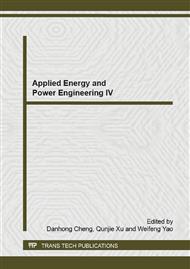p.1652
p.1656
p.1664
p.1668
p.1672
p.1679
p.1684
p.1690
p.1696
Braking Energy Recovery Research for Electric Vehicles
Abstract:
For the electro-hydraulic braking system in the electric vehicles, a coordinated control strategy of the motor braking and hydraulic one was proposed, which includs electric vehicle braking intention recognition model contains the brake pedal and the accelerator pedal. The simulation mode was built by using Cruise and Matlab/Simulink. The braking stabilities were simulated at different adhesion coefficient and braking intensity. The simulation results show that: Regenerative braking strategy for electric vehicles under braking energy can be recovered under different conditions, braking energy recovery rate in the early 100km / h speed low intensity braking conditions can reach 73.2%. And regenerative braking results validate the feasibility of the effectiveness of coordinated strategies to match the vehicle's power to improve the electric car electric-hydraulic brake energy recovery efficiency.
Info:
Periodical:
Pages:
1672-1676
Citation:
Online since:
December 2014
Authors:
Price:
Сopyright:
© 2015 Trans Tech Publications Ltd. All Rights Reserved
Share:
Citation:


